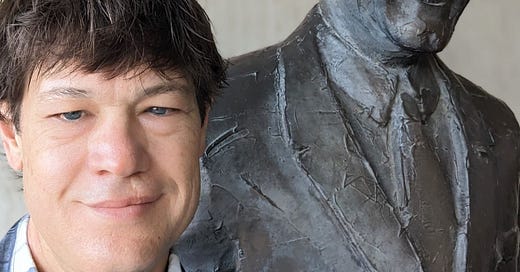One of my favorite podcasts is “Not Another Politics Podcast” from the University of Chicago’s Center for Effective Government. A recent episode being about, of course, the 2024 Presidential Election and “why” Donald Trump won.
You can find lots of debriefs of the election all over the internet, so I’m not going to spend too much time on the specifics of what Kamala did or didn’t do right. I voted for Kamala; I thought she was a pretty good candidate (unlike the podcasters who felt she wasn’t a particularly good Democratic candidate).
I do want to highlight two things that seem to me to be related/feedback loop systemic issues highlighted by the election results. First, is that there seems to be some general consensus that the parties have swapped demographics. Second, is the eroding (eroded) trust in government institutions.
The NY Times token Conservative commenter, David Brooks, had a great editorial in the days after the election (warning: probable paywall) that sums up the great demographic switcheroo:
the diploma divide became the most important chasm in American life. High school graduates die nine years sooner than college-educated people. They die of opioid overdoses at six times the rate. They marry less and divorce more and are more likely to have a child out of wedlock. They are more likely to be obese. A recent American Enterprise Institute study found that 24 percent of people who graduated from high school at most have no close friends. They are less likely than college grads to visit public spaces or join community groups and sports leagues. They don’t speak in the right social justice jargon or hold the sort of luxury beliefs that are markers of public virtue.
Basically, Democrats have become the party of the college graduate - for our purposes we can think of them as the white-collar workforce, academia, and science nerds.
Republicans have become the party of ultra-wealthy and the non-college educated. No singular relationship defines this as well as Peter Thiel (the billionaire co-founder of Paypal, Palantir, and Founders Fund) being the primary benefactor of Yale-graduate and author of Hillbilly Elegy (about cultural resentment in Appalachia), Vice President JD Vance.
The Democrats are no longer the voice of labor, we are no longer the community organizers, we are no longer the voice of the down-trodden. We have all of the answers, all of the charts, and all of the science. We are excellent at lecturing, scolding, and belittling.
Why? What happened? I think it goes something like this:
Republicans (1960s): Government is bad, the private market can solve all of these problems.
Democrats (1960s): The whole point of government is to collectively care for all of our citizens.
Republicans (1980s): Government is bad, the private market can solve all of these problems.
Democrats (1980s): the private market is good at implementation but bad at fairness, we value fairness and the government can ensure accountability and fairness.
Republicans (2000s): Government is bad, the private market can solve all of these problems.
Democrats (2000s): The private market has captured our regulatory agencies and, ex-ante, has both reduced government efficiency through the revolving door of private market executives into and out of government agencies, and increased use of state military assets to further corporate interests.
Republicans (2020s): Government is bad, the private market can solve all of these problems.
Democrats (2020s): The private market and government are infected by systemic racism, sexism, and classism and until those problems are fixed before we all die in a fiery ball of smoke from the effects of climate change we can’t trust the police, health care, or educational system to provide fair and equitable service.
And we wonder why nobody trusts government institutions any more.



